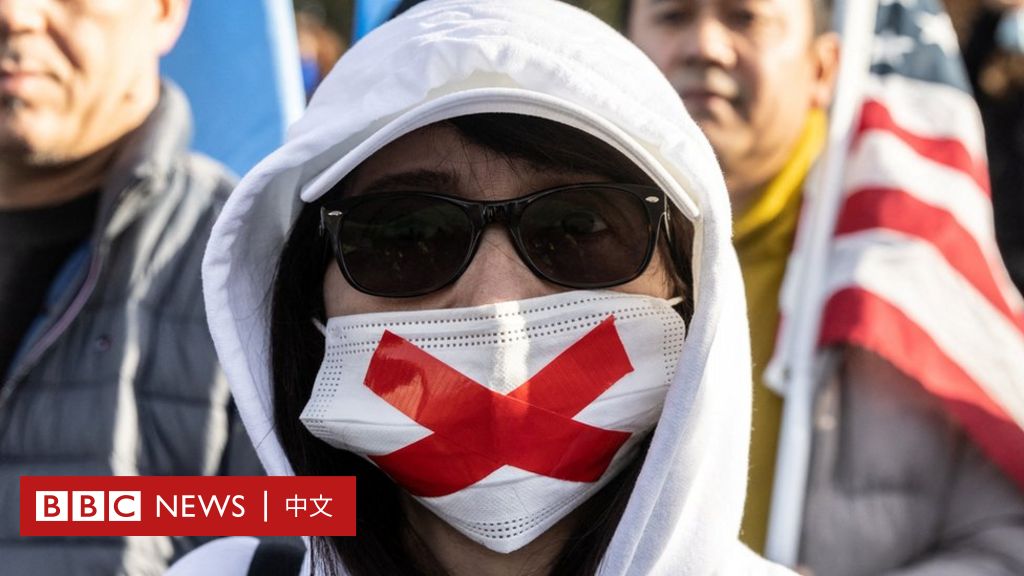
image source,Reuters
Demonstrations have taken place inside and outside China amid widespread discontent with China’s strict “no-go policy” during the coronavirus pandemic.
A 25-year-old international Chinese student appeared in federal court in Boston on Wednesday (December 14) after being arrested by the US Federal Bureau of Investigation (FBI) on suspicion of threatening and stalking supporters of the Chinese democracy movement online.
The bureau also revealed that 25-year-old Xiaoli Wu (Wu Xiaoli, literally) is a student at Berklee College of Music in Boston. Those convicted of stalking and threats face up to five years in prison, three years of supervised release, and a fine of up to $250,000.
On October 22, 2022, someone posted a flyer on or near the campus of Berklee College of Music in Boston that read, “Stand with the Chinese people” and “We want freedom,” according to a press release from the US Attorney’s office. and “we want democracy”.
Allegedly, from around October 22, 2022, until October 24, 2022, Wu made a series of targeted contacts to the victim who posted posts via WeChat, email, and Instagram.
Wu was also accused of saying, “If you publish it again, I will cut off the hand of that bastard.” He also told the other party that he had reported the other party’s actions to the Chinese Public Security Agency, and the Chinese Public Security Agency would “welcome” the victim’s family.
In addition, Wu was also accused of inciting others to inquire about the victim’s residence, and publicly publishing the victim’s email address, hoping that others would abuse the victim online.
The US Attorney’s Office for the District of Massachusetts said: “The US Department of Justice will always defend the right to freedom of speech and political expression. However, we believe that Mr. Wu’s threats and harassment were not freedom of speech, but an attempt to suppress and intimidate activists ‘expressing views against China’.” .
Anti-clearing protests: How can Chinese students in the US use measures to support them?
“This alleged behavior is particularly disturbing and completely contrary to our nation’s democratic values,” said Joseph R. Bonavolonta, Special Director of the FBI’s Boston office.
In recent years, there have been reported incidents of overseas Chinese students threatening or censoring the activities of their compatriots at Western universities. This not only causes many Chinese students to self-censor when expressing opinions different from those of the Chinese government, but also causes violent confrontation on campus because of their different stances.
The Four Bridges Protests and the “White Paper Movement”
On October 13, protests against leader Xi Jinping and China’s anti-epidemic policies erupted on Beijing’s busy Sitong Bridge.
A giant banner with red letters on a white background is hung on both sides of the blue sign board of Situng Bridge.
One banner reads: “You don’t have DNA, you need to eat, not block and control, you need freedom, not lie, you want dignity, you don’t want cultural revolution, you want reform, you don’t want leaders, they want to vote and not be slaves but citizens.”
Another short banner read more direct criticism, calling Xi Jinping a “dictatorial traitor” and demanding his resignation.
The Sitongqiao protest has sparked a number of solidarity protests against China’s “zero policy” of the novel coronavirus at home and abroad, and is also considered a precursor to China’s recent “white paper movement” against the zero policy.
Lu Shaye, China’s ambassador to France, said during a dinner at the French Association of Diplomatic Correspondents in Paris last week that “foreign anti-China forces” were quick to seize the opportunity to politicize the situation. Although the “white paper parade” is white, it also represents a “color revolution” because “white is also a color.”
Lu Shai also said that he can “smell the ‘color revolutions’ that have occurred frequently in developing countries in recent years. Everything I said is based on evidence. Some Chinese people have been ‘bought off by outside forces'”.







